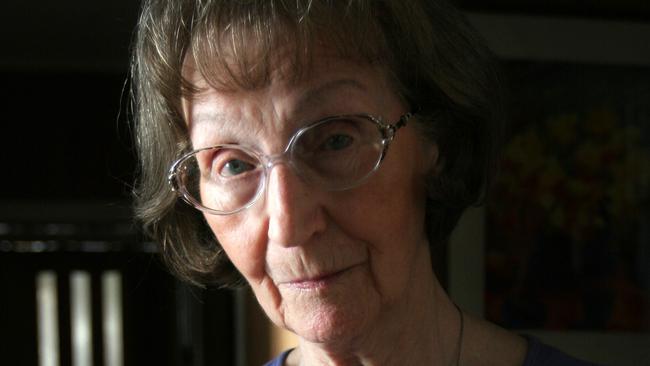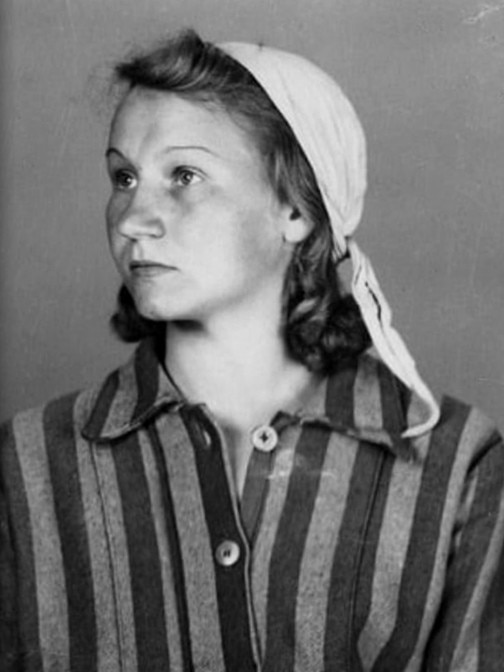Holocaust survivor wrote of life in Hitler’s camps
Zofia Posmysz had decided to seal her concentration camp memories forever, but they were accidentally liberated, and she took them on a remarkable journey.

OBITUARY
Zofia Posmysz-Piasecka Author.
Born Cracow, Poland, August 23, 1923; died Oswiecim, Poland, August 8, aged 98.
-
Numbers were always a part of Zofia Posmysz’s life. To the Nazis she amounted to zero, although at Auschwitz inmate No.7566 would be tattooed on her arm; she used 7566 instead of a byline when she came to write of those experiences, and a book expanding on her memories was called The Passenger in Cabin 45. The most reassuring number was 98 – the age at which she died, having defied extraordinary odds for so long.
Her concentration camp years were behind her when that history popped up unexpectedly as she walked through Paris’s Place de la Concorde in 1959. (Concorde had seen much history; Nazi troops and tanks had controlled it just 15 years earlier, and Louis XVI, Marie Antoinette and Maximilien Robespierre had been executed there during the French Revolution and the Reign of Terror.)
Convinced she was overhearing the voice of her Auschwitz jailer, Anneliese Franz, Posmysz’s blood ran cold. She wondered if she should report the woman to police – former members of the sadistic SS paramilitaries were wanted criminals – or perhaps approach the woman to ask: “Wie geht’s, Frau Aufseher” – in English “How goes it, Frau Overseer?” But it was not Franz; just a German tourist. (Franz is reported to have died aged 43 two years earlier.)
The horror from which Posmysz believed she had escaped turned out to be almost paralysing memories compartmentalised and blocked off. That afternoon they were unleashed in a rush and Posmysz set out to deal with them and to live with them, telling the world of them so it would never forget.
Posmysz grew up in Cracow, Poland’s second city, between the world wars and was trapped there, aged 19, when the Germans invaded, sparking World War II and beginning six years of terror and slaughter. She had learnt German at school and soon found herself forced to work in a canteen for Nazi soldiers.

A Catholic, Posmysz came to the attention of the Gestapo when she and friends, studying at an underground “university”, were discovered distributing anti-Nazi pamphlets. They were sent to Auschwitz, these days the byword in the unthinkable, factory-like efficiency of Hitler’s plan to rid the world of Jews, Gypsies, the unwell and the inconvenient. The statistics of the Holocaust, particularly in the instalments authored at Auschwitz – where people were experimented on and teeth fillings were wrenched out of the mouths of the soon-to-be-dead – are numbing.
That within a year the Nazis had collected 3000kg of human hair shaved from their victims to be recycled into carpets and used as mattress stuffing sums up the scale of this fetid “business”.
Posmysz was worked almost to death, suffered typhus and witnessed horrors she filed away never to be revisited. She determined not to be haunted by such hate. When liberated in May 1945 from the Ravensbruck camp in Germany to which she had been transferred, she and 20 other woman walked home to Cracow – more than 700km, even on today’s highways.
She returned to university and became a journalist, first on a newspaper, then for Polish radio. It was on a radio assignment in Paris that her life changed.
She never used the word healing but clearly found writing about her experiences liberating in some way. The Passenger in Cabin 45 turned her own experience around with a former concentration camp guard – now married to a German diplomat unaware of his new wife’s old life – spotting a survivor of her cruelty on a ship. It started out as a radio play, turned into a novel (translated into 15 languages), then a television play, then a film and, finally, an acclaimed opera, on the recommendation of Russian composer Dmitri Shostakovich. She always said that had she written it from the victim’s perspective it would have been ignored.
She spent much of the rest of her life writing novels and short stories, often about her wartime life, and spoke publicly about it. It was never painless but she was always pleased to deliver the message: “I stopped having nightmares.” Her exposure to so many chemicals at that time rendered her unable to have children. She sometimes travelled to tell the world about her life and to explain Cabin 45. In 2006 she was among Auschwitz survivors introduced to Pope Benedict when he visited the site.
Two years ago she spoke about the rising tensions between Vladimir Putin and Western Europe, Poland and Ukraine, telling The New York Times about her fears Putin was distorting history: “I can never say it will not happen again because (some leaders have) dangerous ambitions, pride and sense of being better than others.”




To join the conversation, please log in. Don't have an account? Register
Join the conversation, you are commenting as Logout